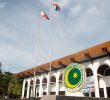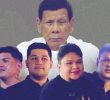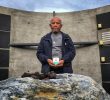The GRP panel statement of December 3, 2008 on the informal talks held in Oslo on November 28-30, 2008 is highly deceptive, misleading and duplicitous. The GRP panel preconditioned the resumption of the formal talks and the reaffirmation of the Joint Agreement on Safety and Immunity Guarantees (JASIG) and the other previously signed agreements to a prolonged ceasefire.
Up to the night of November 30, the NDFP Negotiating Panel was offering the following text to be signed by both panels:
“The two Panels agreed on the following:
1. They shall resume their formal meetings in 2009 in accordance with previously signed agreements;
2. Prior to the forthcoming resumption of the formal meetings of the Negotiating Panels, the GRP shall reaffirm the JASIG so that the safety and immunity of the members of the panels, consultants, staffers and other duly authorized in the peace negotiations shall be guaranteed in accordance with the JASIG;
3. The Joint Monitoring Committee shall reconvene in the third week of January 2009 in a foreign neutral venue mutually acceptable to the parties in consultation with the third party facilitator and shall be made fully operational.
4. A ceasefire shall be declared by the Parties for the duration of formal meetings of the Negotiating Panels as a goodwill and confidence-building measure.”
While the GRP Panel claimed that they were in favor of the resumption of the formal talks in 2009, they preconditioned such resumption to the NDFP’s acquiescence to the prolonged ceasefire. They also did not want to reaffirm the JASIG prior to the resumption which they preconditioned with the prolonged ceasefire. Hence they would not guarantee the release of N DFP consultants arrested and detained in violation of the JASIG, nor withdraw false charges filed against NDFP personnel also in violation of the JASIG, unless the resumption conditioned on the prolonged ceasefire would take place.
The kind of ceasefire the Arroyo regime wants to impose on the NDFP amounts to pacification of the revolutionary forces and in fact prevents the substantive negotiations on social, economic and political reforms. It means the casting away of all existing agreements and the framework of peace negotiations already agreed upon in The Hague Joint Declaration of 1992 and subsequent agreements. The regime thus wants to convert the peace negotiations into ceasefire and surrender negotiations. It seeks to require the people’s democratic government to give up its governmental functions which are misrepresented by the GRP as criminal.
The protracted ceasefire that the GRP seeks to impose on the NDFP violates The Hague Joint Declaration and is diametrically opposed to the NDFP proposal for immediate and comprehensive truce previously proposed by the NDFP. With its 10 points of principle, the concise agreement for an immediate just peace is meaningful and beneficial to the people, unlike the concept of the GRP which merely wants to pacify the people’s resistance and prevent substantive negotiations. Please see attached NDFP Proposal for Immediate Just Peace, issued on August 27, 2005.
Without any protracted ceasefire, the GRP-NDFP peace negotiations resulted in more than 10 agreements, including the framework agreements and the Comprehensive Agreement on Respect for Human Rights and International Humanitarian Law (CARAHRIHL). Not a single substantive agreement has ever been made during the Arroyo regime since it started to demand the pacification and surrender of the NDFP under the guise of protracted ceasefire.
It is the NDFP’s firm position that compliance with the previously signed agreements must not be preconditioned by a protracted ceasefire. Such compliance must not be delayed by protracted informal or formal talks about ceasefire. The issue of ending armed hostilities belongs to item no. 4 in the substantive agenda defined by The Hague Joint Declaration. This should be negotiated after agreements on social and economic reforms and political and constitutional reforms shall have been completed. The issue of ending hostilities must not be used to delay, derail or prevent substantive negotiations on reforms needed to address the roots of the armed conflict.
Issued on behalf of the NDFP National Council
LUIS G. JALANDONI
Member, National Executive Committee
Chairperson, Negotiating Panel
National Democratic Front of the Philippines
Peace Process









